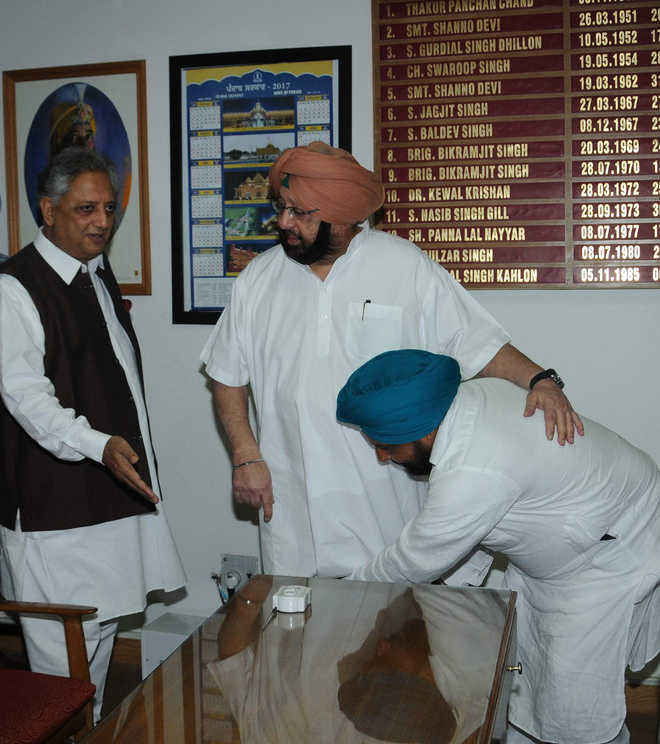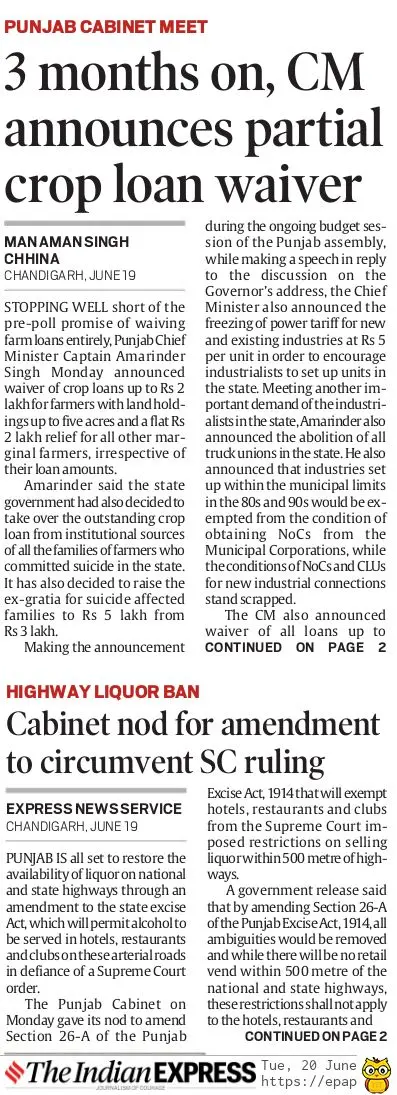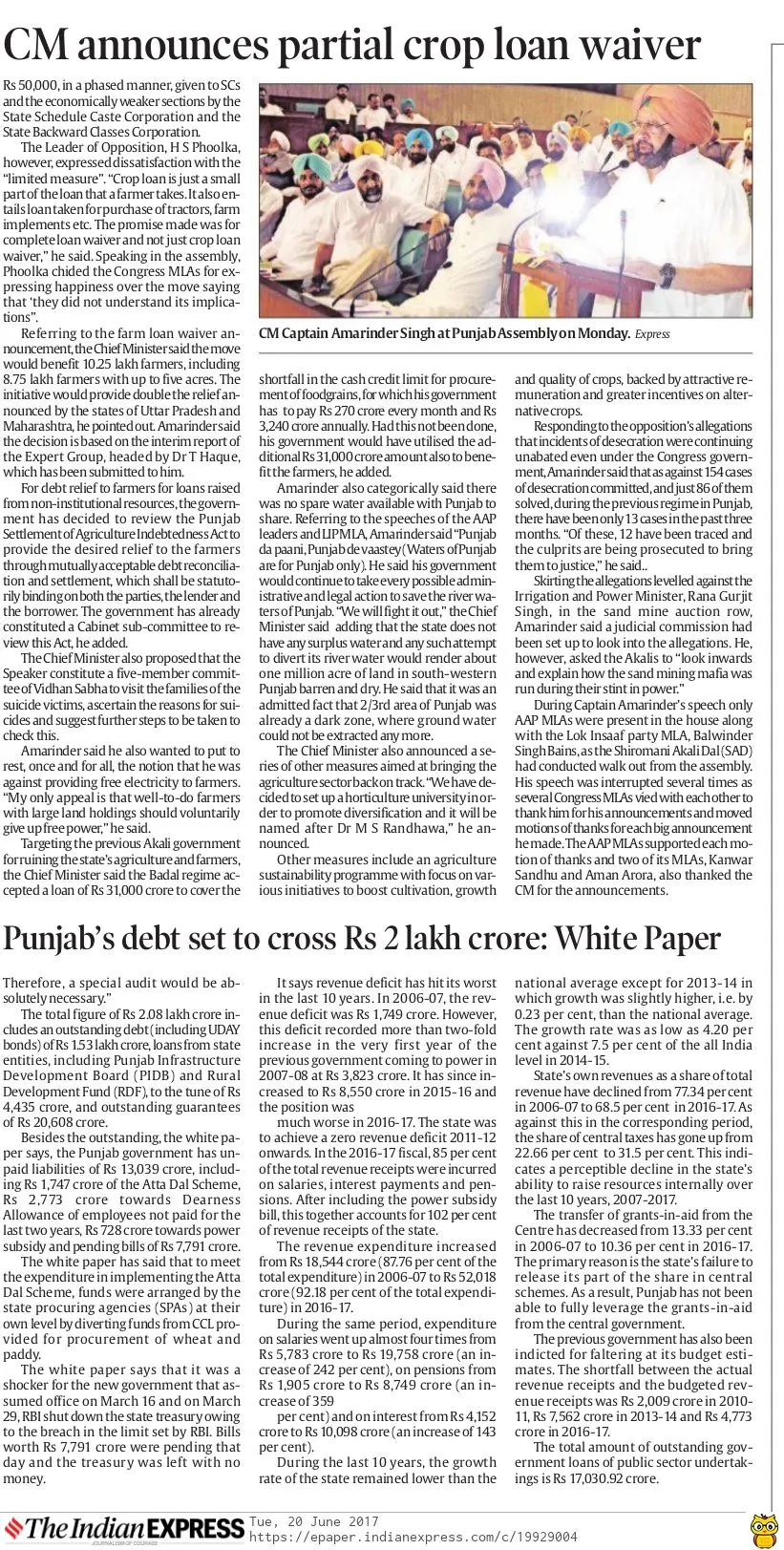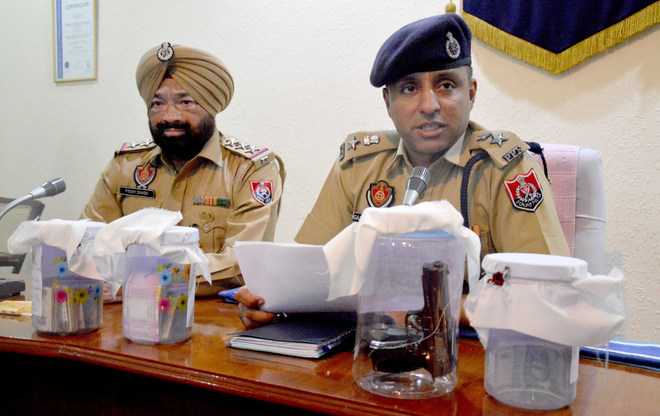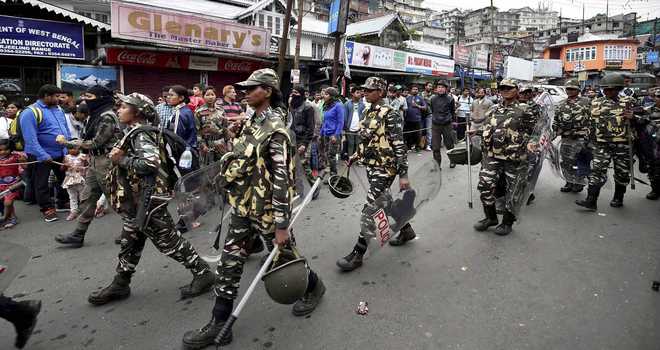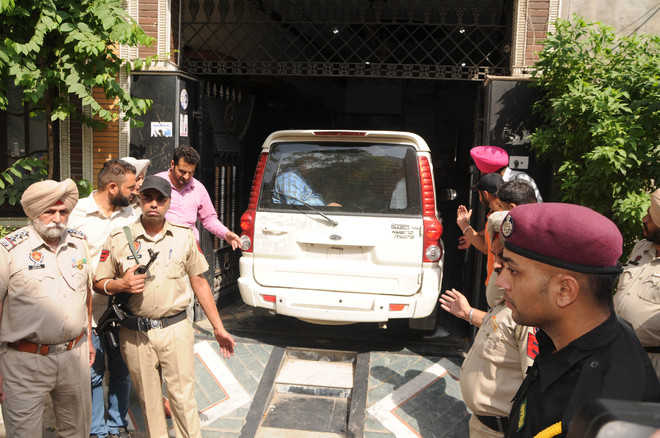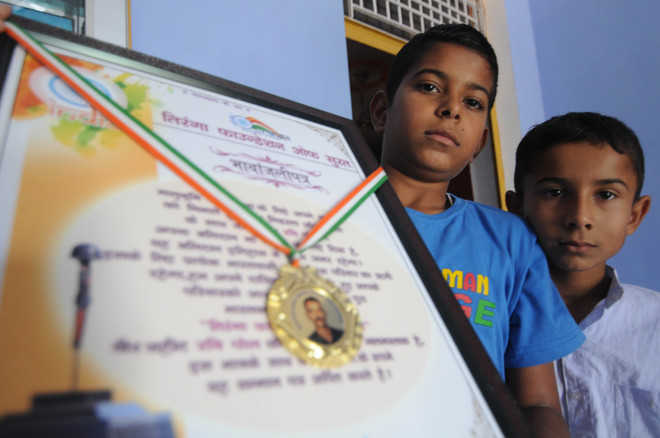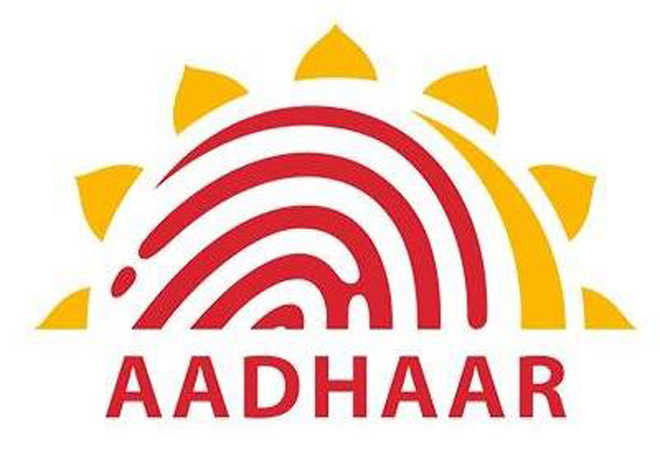.jpg?w=640&q=60&fmt=pjpeg&auto=format)
SNAPSHOT
Can Prime Minister Modi convince President Trump that what is in India’s interest is also in the interest of the US?
After a successful run on the home front with Uttar Pradesh elections, and notwithstanding the ongoing problems in Jammu and Kashmir (J&K) and the farmer agitation, Prime Minister Narendra Modi is once again active on the strategic foreign policy front with a chain of visits to important countries. Having completed his Sri Lanka, Europe, Russia and Kazakhstan (SCO) tours, he is about to embark on the most important tour of the United States from 25 June, and will then round it up with a visit to Israel.
The US visit is a little different this time. The bonhomie and personal relationship Prime Minister Modi established with former US president Barack Obama is missing, and the potential of developing a similar bond with the maverick new US President remains a challenge. The European, Russian and SCO sojourns would have given Mr Modi a deeper insight on how the rest of the world perceives the new US Presidency, which has belied the principle that in democracies policies rarely change with change of chief executives.
The US is undergoing a deep change in foreign policy orientation but without any degree of certainty about the exact direction. It has internal challenges for the President and an opposition which isn’t going to give up too soon on making the life of President Donald Trump seriously troublesome. Two regions, recently visited by Trump – Middle East and Europe – reveal his thinking. In the Middle East, he has opted for a stronger Saudi Arabia-lead Sunni-oriented setup with an eye on containing Iran. Arms deals and memorandums of understanding signed for $110 billion worth of weapons really do not mean much, although it seems to have tempted Trump. He has reversed Obama’s attempts to play a more conciliatory role between Iran and Saudi Arabia to ease Tehran out of isolation, and hopefully force it to be less confrontationist on the Syria and Iraq related problems.
He forced the Qatar crisis, taking credit for it, and then signed a $12 billion deal with the Gulf state. This displays the lack of clarity in the US State Department. None of it is going to stabilise the Middle East, which remains a core area of concern for India too. With an 8 million Indian diaspora in the Middle East, huge dependency for its energy supplies from the region and the necessity of maintaining equidistance in its relationships between Iran and Saudi Arabia, Mr Modi is bound to look towards getting more indicators on which way the cookie of US Middle Eastern policy is going to crumble.
Trump’s recent visit to Europe gave more indicators that he is as serious as he was during his election campaign about ensuring that the US does not pay for the security of others, including time-tested arrangements such as North Atlantic Treaty Organization (NATO). It left European leaders with a degree of clarity that European security is now their own business, although the US will continue to remain in consultation mode. Given the depth of the NATO relationship and the trust it carried over time, what would Trump be looking at with regards to emerging relationships? The relationship with India that had just entered into early stages of a preferential strategic one would need to fit the Trump blueprint of ‘America First’.
The emerging strategic relationship with India under Obama did not expect the US to play any role in the defence of Indian territory as against the European pattern and what the Saudis largely expect; that is a plus. If the billion dollar arms deal which has tempted Trump no end materialises with the Saudis, there will be payment issues; Saudi Arabia isn’t exactly in the pink of economic health. With India, the recent Lockheed Martin-Tata deal for the production of F-16 jets in India may be the indicator, in fact the tip of the iceberg. The US is already India’s largest arms supplier. As per an official government of India report, arms worth Rs 28,895 crore ($4.35 billion) were contracted with the US during 2013-14, 2014-15 and 2015-16. This is only set to grow as India’s arms need to proliferate even under the clause of joint production. All this is to Mr Trump’s liking.
The world order has perhaps not been in greater flux since the end of the Cold War as it is in current times. Even in 2014-15, when Obama was in power and the new Indian government was elected, there was a degree of stability since Obama had maintained the US traditional role of being the world’s policeman albeit in diluted terms. Two aspects contributed to the change. First was the inability to control the scourge of the Islamic State, which gave an impetus to global terror. The second was the continuing rise of China under Xi Jinping. Beijing’s ambitions then appeared more conciliatory, but it has been its aggressive stance towards the South China Sea and the outreach in terms of the Belt and Road doctrine, which has given it a less cooperative approach in terms of maintaining balance of power with the US.
Among issues, which Mr Modi and his advisers will no doubt be taking into account will be the threats to India’s neighbourhood spelled by China’s aggressive attitude towards cultivation of smaller nations in South Asia; the future of Afghanistan and what the US intends to do about it as the Taliban is nowhere near defeat; the Indian Ocean region and the prospects of strategic partnerships with the Pacific region under the US umbrella with like-minded nations such as Japan, Vietnam and South Korea – all of whom are worried and feel threatened by China. On the purely bilateral front, the issues concerning H1B visas should also be on the agenda.
Trump’s dealing with the Middle East doesn’t appear anywhere near creating stable conditions and the core area which gives vigour to global terror is likely to remain in flux. Although India can take solace from the fact that Pakistan was not given the significance it seeks, Trump has yet to show any clarity on how he intends to deal with the errant state. He may have gone back partially on Obama’s Cuba and Iran deals but nothing emerging from his administration thus far seems to show concerns about Pakistan, its role in Afghanistan and J&K, and in the general spread of radical violent extremism.
Mr Modi would probably dwell on his host to explain how Pakistan’s relationship with China is helping increase its belligerence and that without anything substantial against it, it is unlikely to retract its hand in Afghanistan and J&K. Considering Trump’s policy of reducing US role in security of others, it needs to be realised by the US that in the case of Afghanistan-Pakistan, it is its core interests which are being affected. It is quite unlike Europe, where the nations are quite capable of dealing with ‘dirty’ threats; Afghanistan-Pakistan issue cannot be left to the shenanigans of Islamabad. The only tricky issue that Mr Modi is likely to confront is the extent to which India is willing to go to assist the US in defeating the Taliban. It is not soft power alone which can qualify, although it has been India’s major contribution.
Issues regarding provision of Indian troops for a more active role in Afghanistan have emerged before and warded off under the pretext of lack of common borders with Afghanistan and the problem of logistics without an adequate strategic air lift capability. Some compromise by Mr Modi through provision of enhanced lethal military hardware and training to the Afghan security forces could be possible, but this will be at the cost of India’s policy of keeping a window open to the Taliban in the event of things going completely out of hand. This is likely to be a tricky affair, where the US would demand more from India and India would need to consider its interests from a wider perspective.
On China, it appears that Trump is looking at short-term support from it to counter the threat from North Korea, a problem more of US making. This prevents him from looking at the larger picture of the growing Chinese threat. While India may not wish to be seen in any anti-China alliance, its partnership with like-minded nations that feel threatened by China’s ambitions gives it the leeway to consult and be consulted. This is what Mr Modi should seek. Denying India a role in multinational maritime exercises out of fear of China is unlikely to help in the containment of China’s runaway ambitions; this is what Mr Trump needs to realise.
Lastly, on China, both India and the US have misgivings on the Belt and Road Initiative perceiving it as a hegemonic doctrine. The promotion of an Indian Ocean to Pacific trade corridor needs greater thinking, involvement and energy to be considered a viable alternative. Will this be touched upon in Mr Modi’s discussions? Strategic partnerships, no doubt must enable the discussion of issues, which concern both partners, but must equally address the concerns of any one of the nations; that become the basis of enduring and strong relationships.
On the Paris Climate Deal, the prevailing mood in Washington precludes the chance of the issue coming up in the talks, although India was at the receiving end of Trump’s diatribes, mostly without much substance. Such lack of understanding of basics must be left to ministerial aides to clarify and hopefully resolve because they will not contribute towards greater confidence building between the two leaders. This argument may not be extended to the issue of H1B visas. Business leaders such as Satya Nadella, also of Indian origin, have had discussions with President Trump to explain the reality, which is the fact that US needs highly-qualified foreign manpower as its high-end technological research and development capability is not matched by the technical manpower it produces.
The Indian diaspora has been an asset to the US in generating wealth and keeping itself out of trouble. Its presence actually helps in creating more jobs, part of which is subscribed by US citizens. Someone also needs to remind Mr Trump and his aides that Indians do not involve in acts of terror including the 180 million Indian Muslims, many of whom also flock to the US. In the natural abhorrence towards immigrants, there is no reason to fear the Indians who form perhaps the safest diaspora.
Much will depend upon Mr Modi and his team’s ability to explain India’s worldview and how it only enhances the US agenda for securing America. There are irritants galore and many out of a sense of misunderstanding more than anything. How pinpricks are converted to bouquets is the art of knowing how far to go with how much. Mr Modi has displayed an innate ability to strike personal relationships with just that attitude. Will that happen in the case of President Trump is for us to see the next week.






















































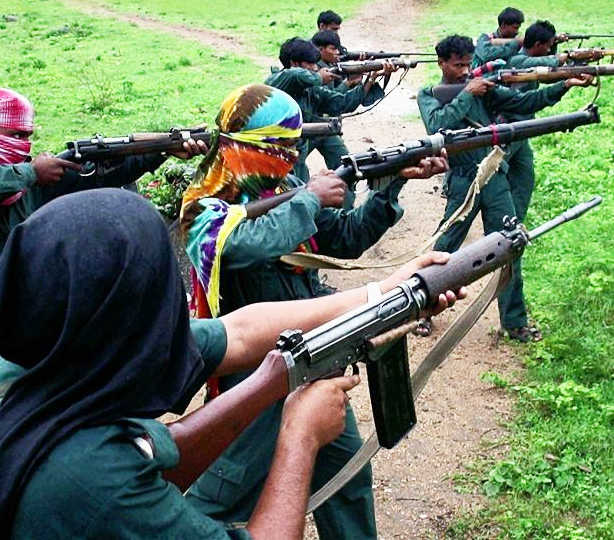
 KESHAV SINGH/HT
KESHAV SINGH/HT HT FILE
HT FILE
